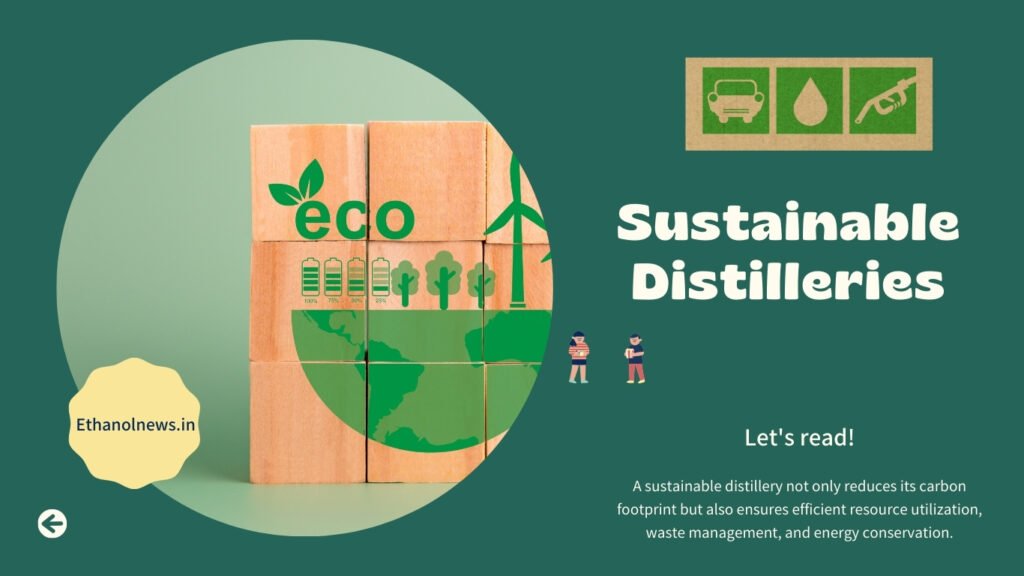Sustainability in the Distillery Industry: A Path Towards Green Ethanol Production
The ethanol industry plays a crucial role in the global transition towards cleaner energy and sustainable industrial practices. However, as the demand for ethanol increases, distilleries must adopt sustainable approaches to minimize their environmental impact. A sustainable distillery not only reduces its carbon footprint but also ensures efficient resource utilization, waste management, and energy conservation.

Key Aspects of a Sustainable Distillery
1. Energy Efficiency and Renewable Energy Use
Traditional distillation processes consume large amounts of energy, primarily from fossil fuels. Sustainable distilleries are shifting towards renewable energy sources such as biomass, solar, and wind power to reduce greenhouse gas emissions. The integration of energy-efficient technologies, such as heat recovery systems and advanced distillation methods, further minimizes energy consumption.
2. Water Conservation and Recycling
Water is a critical resource in ethanol production. Sustainable distilleries implement water-saving strategies, such as closed-loop water recycling systems, rainwater harvesting, and wastewater treatment for reuse. These practices significantly reduce water wastage and lower the strain on local water resources.
3. Waste Management and Byproduct Utilization
Ethanol production generates significant byproducts, including spent grains, carbon dioxide, and wastewater. Instead of discarding these byproducts, sustainable distilleries repurpose them. Spent grains can be used as animal feed or converted into biofertilizers, while carbon dioxide can be captured and utilized in the food and beverage industry. Proper wastewater treatment ensures safe discharge or reuse in industrial processes.
4. Sustainable Raw Material Sourcing
A major factor in sustainable ethanol production is the responsible sourcing of raw materials. Using feedstocks such as agricultural residues, sugarcane bagasse, and non-food crops minimizes competition with food supply and promotes environmental sustainability. Additionally, sourcing from local farmers supports rural economies and reduces transportation-related emissions.
5. Carbon Footprint Reduction
To achieve carbon neutrality, distilleries are adopting carbon capture and utilization (CCU) technologies. These technologies allow the capture of CO2 emissions from fermentation and repurpose them for industrial applications. Additionally, adopting energy-efficient logistics and transportation strategies further reduces the overall carbon footprint.
The Future of Sustainable Distilleries
As regulations on emissions and sustainability tighten worldwide, the ethanol industry must prioritize green practices. Government incentives, technological advancements, and industry collaboration play a crucial role in accelerating the adoption of sustainable distillation processes.
Sustainability is no longer an option but a necessity for distilleries aiming for long-term success. By embracing eco-friendly practices, distilleries can ensure a greener, more efficient, and responsible ethanol industry for future generations.
For more updates on sustainable ethanol production and industry insights, stay tuned to EthanolNews.in
